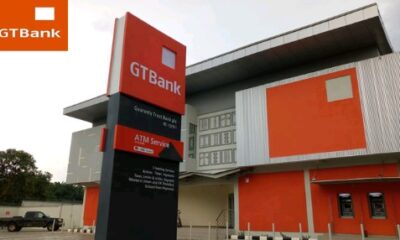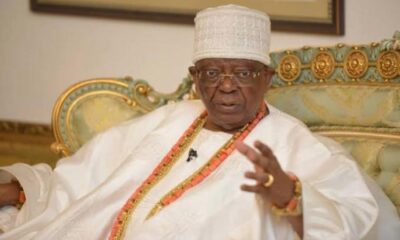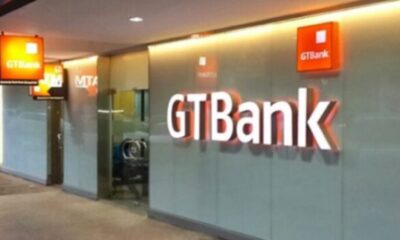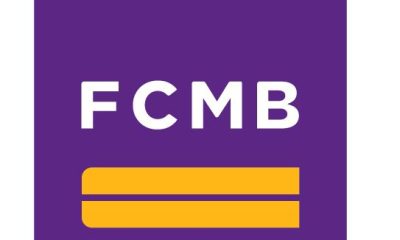Oil marketers operating under the Independent Petroleum Marketers Association of Nigeria have forecast a reduction in the retail price of Premium Motor Spirit, commonly known as “petrol,” to N950 per litre in Lagos State.
It also indicated that customers in the Federal Capital Territory may pay N990 per litre.
The IPMAN National Publicity Officer, Chief Chinedu Ukadike, shared this insight during an interview with our correspondent, emphasizing that the product will now be priced below a thousand naira.
He stated, “Once there is a price reduction, it will trickle down. There will be a change to the pump price. It will be less than N1,000. But the difference will be determined by location. It may be N950 in Lagos and possibly N990 in Abuja. Logistics will play a key role. Remember that the price of “diesel” hasn’t reduced and that is what we put in our tankers.”
This anticipated price decrease follows the decision by the Dangote Petroleum Refinery to lower its ex-depot price to N899.50 per litre.
The new price is the second reduction within a month and a decrease of N71 or seven.per cent from the previously adjusted price of N970 per litre on November 24.
Earlier on Thursday, a statement by the Group Chief Branding and Communications Officer of Dangote Group, Anthony Chiejina, announced the introduction of a special petrol price offer to benefit Nigerians.
In addition to the holiday discount, it said customers are now allowed to purchase an additional litre of fuel on credit for every litre bought on a cash basis.
The refinery offered a price of N899.5 (cash payment) for two million litres and a matching two million litres on a Bank Guarantee valid for 15 days (Access, Zenith & First Bank) from the N970 per litre announced by the company last month.
It also proposed an N895 (cash payment) for 10 million litres and a matching 10 million litres on a BG valid for 15 days (Access, Zenith & First Bank).
It said the reduction is to provide much-needed relief for Nigerians ahead of the holiday season.
Chiejina said, “To alleviate transport costs during this holiday season, Dangote Refinery is offering a holiday discount on PMS. From today, our petrol will be available at N899.50 per litre at our truck loading gantry or SPM. Furthermore, for every litre purchased on a cash basis, consumers will have the opportunity to buy another litre on credit, backed by a bank guarantee from Access Bank, First Bank, or Zenith Bank.”
The refinery also expressed its gratitude to Nigerians for their continued support as the country enters the festive season.
Chiejina further emphasised the refinery’s commitment to ensuring Nigerians have access to premium quality petroleum products that are competitively priced, as well as environmentally and engine friendly.
He highlighted that the refinery’s operations mark the end of Nigeria being a dumping ground for substandard and ‘blended’ imported products, which have posed significant risks to human health, machinery, and the environment.
He noted, “The Dangote Refinery, with a capacity of 650,000 barrels per day, is the largest single-train refinery in the world. It is fully capable of meeting 100 per cent of Nigeria’s refined petroleum product requirements, with a surplus available for export.”
Last week, the Independent Petroleum Marketers Association of Nigeria sought a reduction in the price of petrol from the refinery.
The group urged the Dangote refinery to consider reducing its ex-depot price from N970 per litre since the estimated cost of landing petrol on Nigeria’s shores has dropped to N900.28 per litre.
Reacting to the new price change, the IPMAN Chairman, Abubakar Maigandi, said the gesture was expected and will reduce the retail price of petrol once offtaking begins.
Abubakar, in an interview with Arise TV, said, “What Dangote has done is what we have been expecting. My marketers are very happy about the reduction, which they have put at the rate of N899.50 per litre for those who are buying two million litres and those buying above 10 million litres will also have their reduction. This is a welcome development. We are happy because we know that the masses will enjoy the benefits.
“We have been telling Nigerians to exercise patience; we knew the price would drop, and we all are seeing it now little by little. The offer to get one million on credit after purchasing two million is also welcome.”
On the reduction of the retail price, he noted, “Once we start picking up products, we are going to change our price so that the consumer will enjoy the benefit.
“Our major challenge was the cost of products from Dangote, so I assure you that with this, all transportation and economic activities will change, especially because transportation is a major driver, and we hope to resolve it with this new change. Now, there is no need to import products from outside the country.”
Also speaking, the Petroleum Products Retail Outlets Owners Association of Nigeria applauded the management of Dangote refinery for slashing the ex-depot price of PMS to N899.50 per litre.
According to the National President of PETROAN, Dr Billy Gillis-Harry, “The price reduction will alleviate the suffering of Nigerians and reduce the cost of living and transportation during this festive period.”
Harry commended the Nigerian National Petroleum Company Limited for ensuring sufficient PMS stocks during the yuletide season. However, he urged NNPCL to revisit its PMS selling rate to foster competition in the downstream sector.
“The reduction in petrol prices by Dangote Refinery has shown that competition can benefit consumers,”
Harry emphasised, “We call on NNPCL to facilitate the privatization of the Port Harcourt Refinery, which will introduce innovative consumer incentives, improve product quality, and enhance service delivery.”
Speaking further in an interview with our correspondent, the PETROAN President stated that its members, empathetic to the suffering of Nigerians, have lowered their prices at retail outlets to nearly N900.
Gillis-Harry said the gesture is intended to demonstrate their leadership in the downstream sector and ensure an adequate supply of petroleum products for Nigerians during the Yuletide season.
He said, “PETROAN members and leadership have reduced their price to almost N900 in several stations even before the Dangote reduction. When we made a strategic agreement with Dangote, even when we hadn’t concluded the whole process. We already know that the PMS and other products will be reviewed and reduced. PETROAN is leading the way to ensure fuel sufficiency and availability. We are making the sacrifice to show our leadership and provide relief for Nigerians.”
Meanwhile, the NNPCL has faltered in its mandate to deliver 385,000 barrels of crude to Dangote Refinery in the month of December, a new report by Argus has stated.
It said the national oil firm only supplied around 202,000 barrels per day in December.
The report further noted that the ramp-up of production at the 650,000 b/d Dangote refinery, likely to occur next year, will affect West African crude trade flows in 2025.
“The refinery remains well below full capacity for now, with estimated deliveries averaging just under 260,000 b/d since March, but Nigerian operator Dangote Group is aiming for 350,000 b/d throughout the first phase of operations.
“When this takes place, and Dangote makes full use of its 385,000 b/d monthly allocation deal with state-owned NNPC, it will affect the amount of Nigerian crude left to be exported to the country’s key outlet – the European market,” it stated.
Although NNPC only supplied around 202,000 b/d in December, the total volume under the deal is equivalent to around a quarter of Nigeria’s crude and condensate monthly exports.
“The deal will eventually bring support to Nigerian crude differentials when European demand is stronger or at least cushion the decline when demand is weaker,” it added.
As Dangote ramps up operations, the refiner could widen its crude slate, which could also affect crude trade flows.
The refinery will take receipt of a 2m barrels cargo of US light sweet WTI bought from Chevron via a tender that closed in November, after a three-month hiatus related to credit issues.
The report noted that Dangote has so far run exclusively on Nigerian crude and WTI, but Nigerian banks eased restrictions on the provision of trade finance to the refiner, which could open the door for possible purchases of non-Nigerian West African crude.
Sources close to the refinery point to Angolan heavy and medium sweet grades as likely to become part of the refinery’s basket intake.
Market participants also pointed out that the recent WTI tender might signal Dangote’s attempt to increase run rates.
Credit: The Punch

 BIG STORY4 days ago
BIG STORY4 days ago
 BIG STORY5 days ago
BIG STORY5 days ago
 BIG STORY2 days ago
BIG STORY2 days ago
 BIG STORY3 days ago
BIG STORY3 days ago
 BIG STORY4 days ago
BIG STORY4 days ago
 BIG STORY3 days ago
BIG STORY3 days ago
 BIG STORY4 days ago
BIG STORY4 days ago
 BIG STORY3 days ago
BIG STORY3 days ago




















